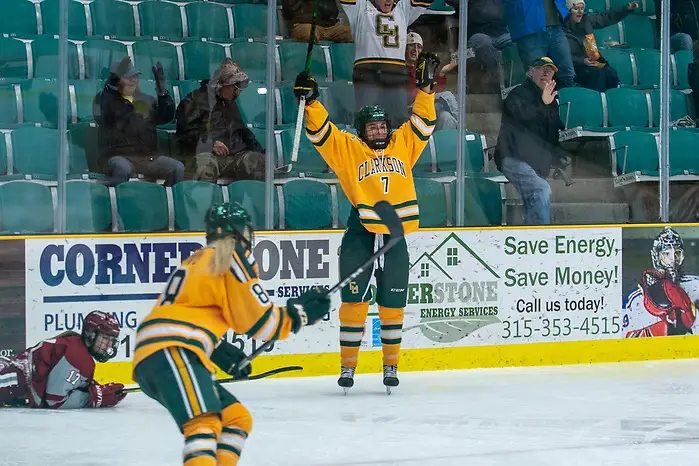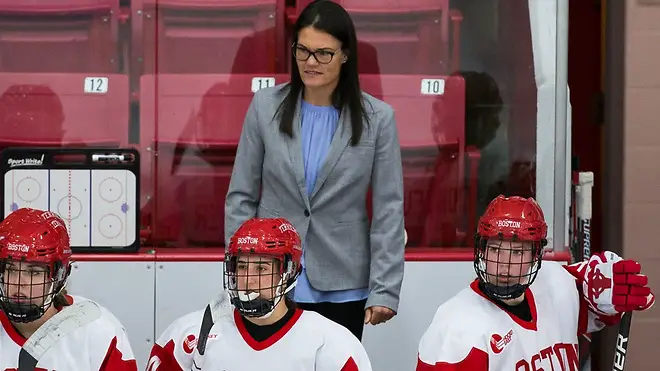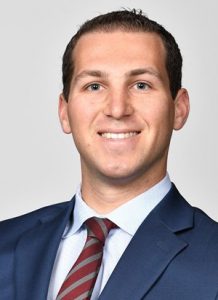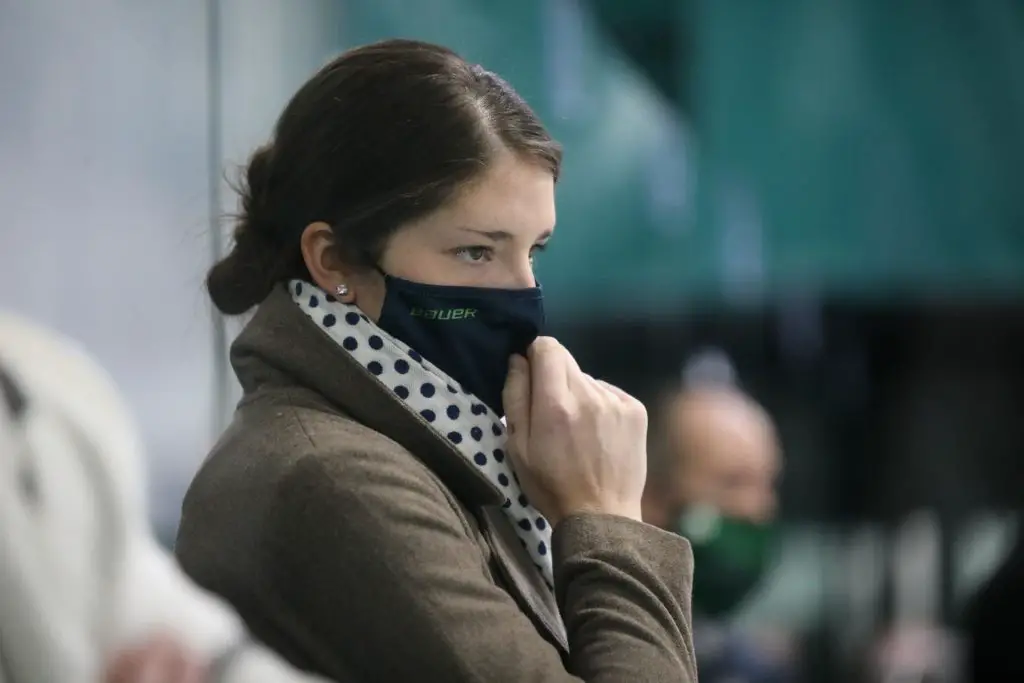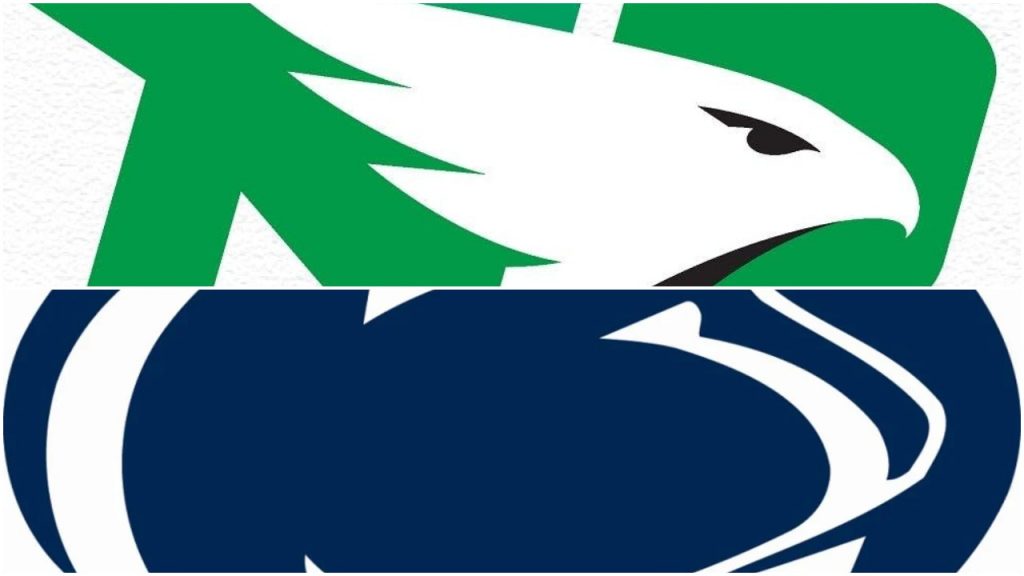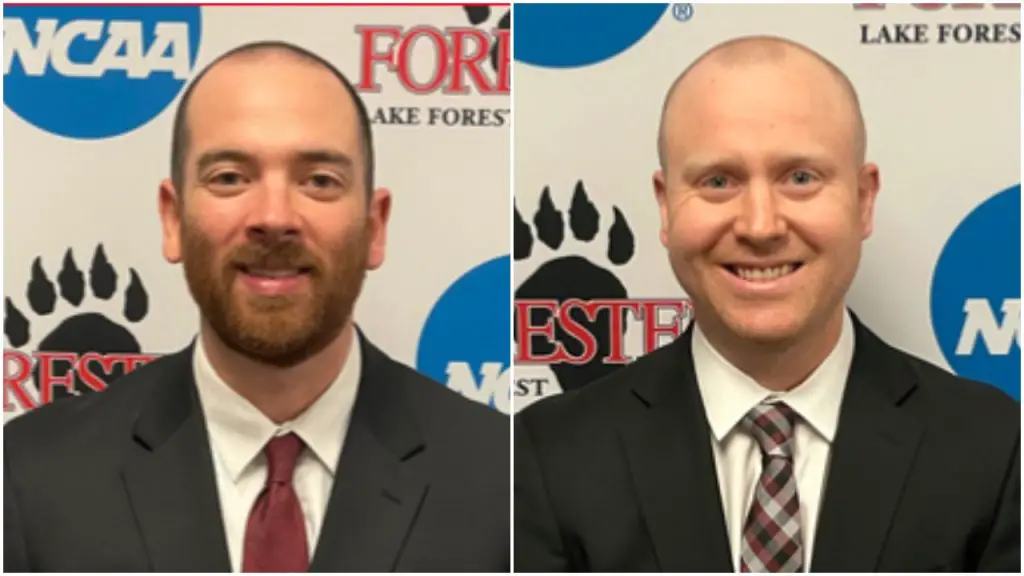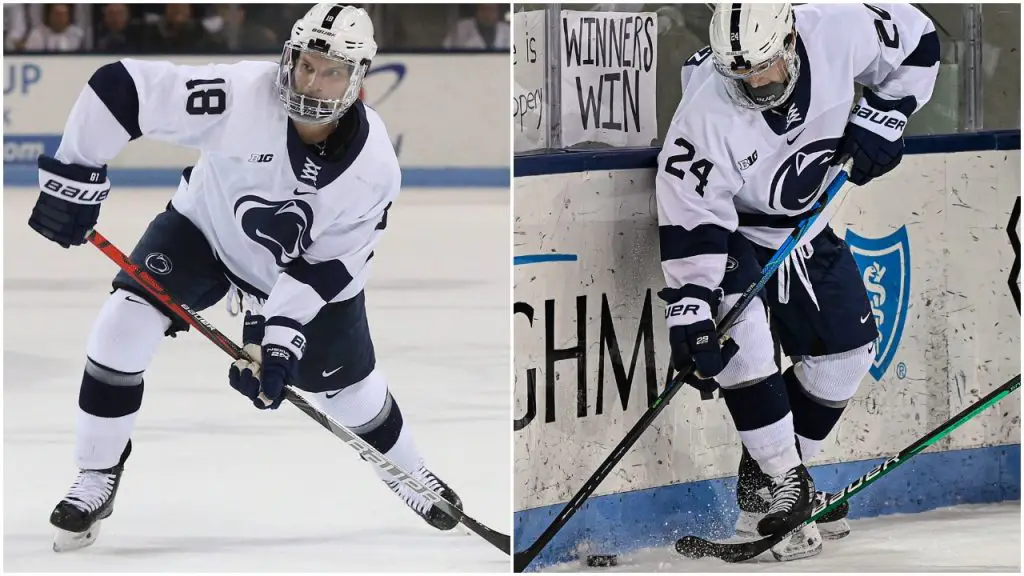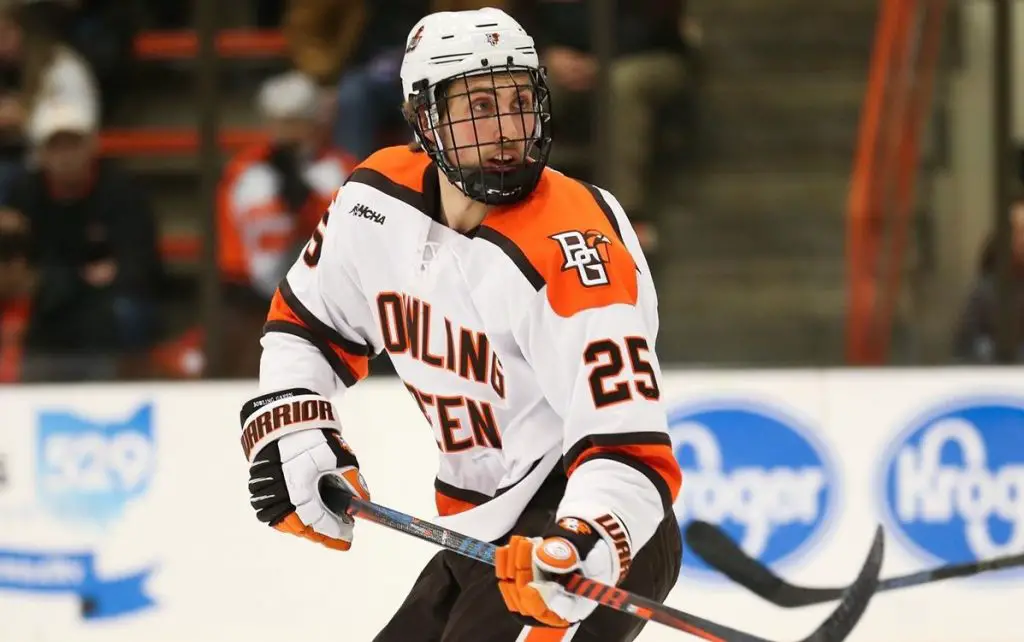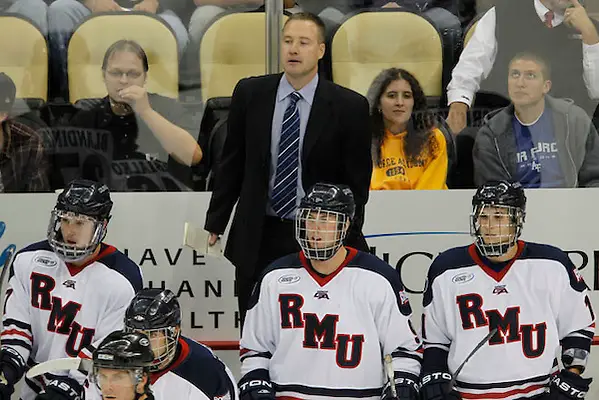
Those of us who have been associated with Atlantic Hockey of the years understand the league’s differences from its peers.
The teams aren’t massive superpowers, but the hockey is as good as anywhere in the sport. There’s unparalleled parity, and the deep rivalries are tempered by an “all for one, one for all” mentality gripped by the constant fight for national respect.
That unity lives in Atlantic Hockey’s undercurrent, and it’s why all 11 teams root for one another whenever they step into nonconference games. They all understand how people saw the conference as an island of misfit toys or a place for teams nobody else wanted, but the more recent era shows constant growth among each of its member institutions.
So that’s why anger and sadness ran recently when Robert Morris University unexpectedly dropped both its men’s and women’s hockey programs. The announcement came out of nowhere and was part of a release further highlighting the university’s strategic initiatives, but it meant the end of hockey programs widely regarded as a rising star for both men and women. Two decades of progress and growth were reduced to rubble, and a tradition of excellence simply disappeared with the snap of fingers.
It’s a cruel irony because RMU fought to assume its cornerstone status in both Atlantic Hockey and the women’s College Hockey America leagues. The men joined the AHA with Niagara because the CHA imploded, but they quickly established a tradition of success with seven consecutive .500 or better seasons. They infamously won the 2014 Atlantic Hockey postseason championship after starting the season in last place, and their pistol-hot second half ranked as one of the best memories in conference history. It jumpstarted a run of six consecutive trips to the Atlantic Hockey semifinals that also included two regular season championships.
The Colonials men won 20 games in three straight seasons, but they defeated a litany of star-studded programs in non-conference play. They used their central location in Pennsylvania to play and beat teams both from the east and west and built a trail lined with wins over Penn State, Michigan State, Ohio State, Dartmouth and Quinnipiac. They additionally hosted a four-team holiday tournament at PPG Paints Arena, a bracket they won three on separate occasions, while serving as host institution for two separate Frozen Fours, including the most recent championship this past April.
“We had a tremendous relationship with the Pittsburgh Penguins,” RMU men’s coach Derek Schooley said. “We have a corporate partnership with the Penguins, and we played games at their practice facility. It’s going to be a challenge because of the support that we had from the Penguins and the great partnership we had with (them). Not everybody got the support of the NHL team like we did. They were outstanding to us.”
That success shifted the perspective from the admissions-based addition of athletics in the mid-2000s. Schooley was the only head coach the program ever knew after he accepted the position one year prior to the team hitting the ice during the 2004-2005 season. He built the team from scratch and spent a year recruiting a roster that didn’t hold ties to the less-established club team on campus, and RMU entered the first season with a new program that joined the CHA following Findlay’s decision to drop hockey.
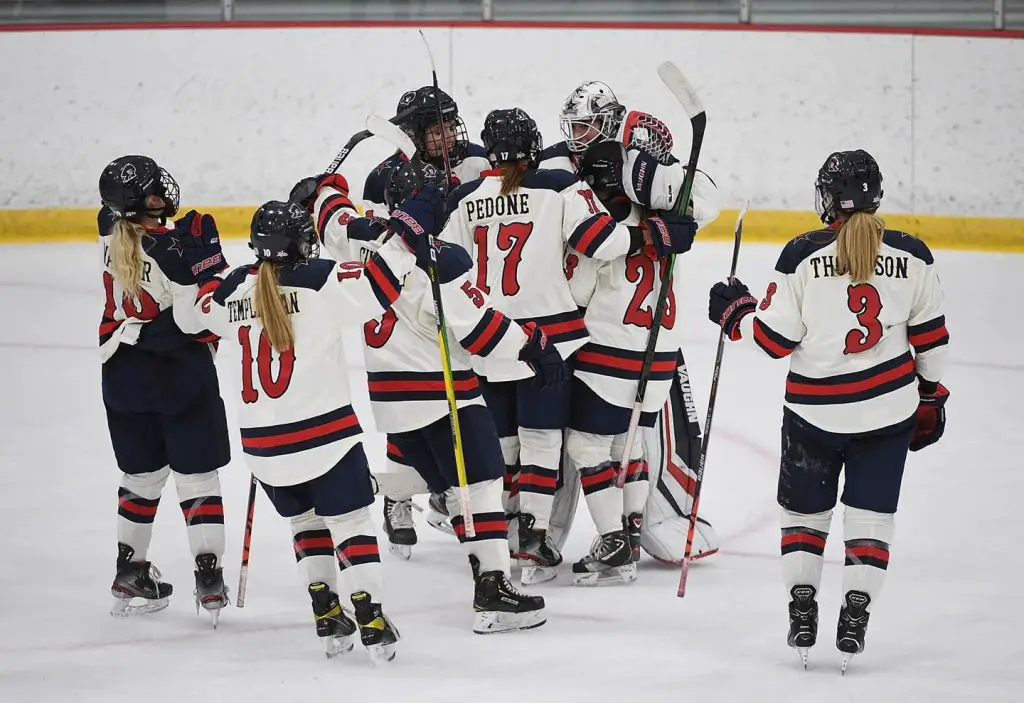
The subsequent implosion of the league resulted in the shift to Atlantic Hockey, and Robert Morris instantly found itself in a position to challenge its new league’s established block. The Colonials had their own building, which was a rarity in that era considering a good chunk of teams played in underfunded municipal buildings, and their home-ice performance challenged the top tier blockade set by Air Force and RIT.
That’s what makes this decision so mercurial. Its head coach was instrumental to its success, and dozens of former Colonials skated among the professional ranks both in North America and in Europe. The arena needed a facelift, but RMU owned the Island Sports Center and recently completed a $50 million basketball arena at the UPMC Events Center in 2019, one year before the rest of the Colonial athletic programs moved from the Northeast Conference to the Horizon League.
“Our building was fine for what we accomplished,” Schooley said. “We have very nice locker rooms and a nice players’ lounge. Is it the Taj Mahal? No, but it was a nice building. We had good crowds. The fans were right on top of you. We didn’t play in front of fans this year, but we were going to have a really good team.
“The building hasn’t been affecting our product. We won the West Division in Atlantic Hockey, and the women won the [CHA] playoff championship [this season]. I had one coach tell me they felt we were going to be one of the top two or three teams in the league this coming year.”
It makes virtually no sense to drop hockey when both the men and women were surging to that degree. RMU routinely swirled in the ever-present realignment conversation, at least anecdotally, and felt miles from the looming decisions that eventually swallowed Findlay, Iona, Fairfield and Wayne State. The team didn’t have the same geographic issues that faced down the Alaska schools or Alabama Huntsville from their recent rounds battling contraction, and their overall location, presence and culture as a top-ranked team in both genders made it feel like it was a heartbeat away from jumping to the CCHA or ECAC or some other prolific conference.
And it is worth noting the historical success of the women’s program. RMU likewise held multiple 20-win seasons over the past five years and won three consecutive CHA regular season championships prior to the 2019-20 season. Colonials women’s coach Paul Colontino finished under .500 only once in his tenure and registered wins over more powerful national brands. A handful of former players turned pro to play in both the CWHL and NWHL, and goalie Brianne McLaughlin won two silver medals with the United States in 2010 and 2014. This past year marked the third CHA tournament championship and second trip to the NCAA Tournament for that program.
It all fed to the belief that RMU was a very healthy program. A conversation about contraction in Atlantic Hockey has existed among the fans and analysts, but the Colonials never lived in that conversation. They simply didn’t have the economic issues facing Alaska Anchorage, which is still in a fight to save its program for the upcoming season, or Alabama Huntsville, which suspended its team because it lost its league affiliation and has stared into the contraction spotlight multiple times. RMU had substantial community support in a major hockey market, and its built-in rivalries against Penn State and its AHA brethren made for an extremely competitive culture.
But now good people are going to lose their jobs and student-athletes are losing the opportunity to play the sport they love. Both Schooley and Colontino each had to deliver the dreadful news to their respective teams, players who put their trust in the school to stand behind them much like they have done representing the institution. It’s a painful pill to swallow.
“We’ve been up front and honest with the players, and we said that we’re working on some things to keep the program alive,” Schooley said. “But they have to do what they have to do for themselves. They have to take care of themselves.
“The players are just as in shock as [the coaches]. I spoke to someone who thought they were going to be told they thought they had to be vaccinated [to play next season], or there was going to be some new COVID protocol or something. Nobody saw this coming. In fact, the women’s team thought they were getting a sneak peak of their CHA championship rings.”
Removing the women’s team is actually more devastating for the college hockey landscape because the CHA now drops to five teams. The NCAA Tournament threshold for an automatic bid is six, and while adding a new team is always an option, simply adding just to maintain numbers might not always be the best option if the team that’s added can’t compete at a similar level to what RMU established.
There is, of course, hope for the future, and both petitions and fundraising are kicking into high gear to save the RMU programs. There’s just no way of knowing what will happen in the coming months and if that’s even a possibility.
Two solid programs are gone, and that’s simply not a good thing for college hockey. Everyone involved on both the inside and out after left with one simple question: “Why?”
Nothing seems to add up and the administration has been irresponsibly silent since issuing a tone-deaf press release. The coaches, players, history, alumni and tradition deserved better, and that by itself is simply just sad.
“I’ve gotten a tremendous amount of texts and phone calls,” Schooley said while fighting back tears. “The reality is that I’ve been here since 2003. I’ve been here for almost 18 years, and it’s the only home my kids have known. It affected 55 student-athletes and seven staff members, but it’s affecting people’s families. This is the only place that we’ve known as a family, so it’s a challenge.
“This was a labor of being here from the start and you start getting emotional because it’s been hard. I don’t wish this on any student-athlete, any staff member, any coach. You go through hard games and hard things that you deal with as a coach and in your personal or professional life, but this is a combination of all of it. It’s hard.”




